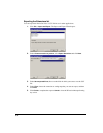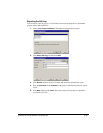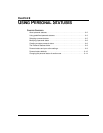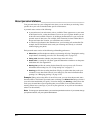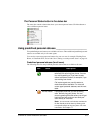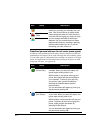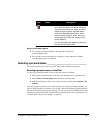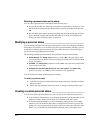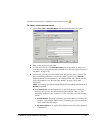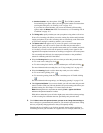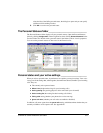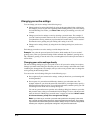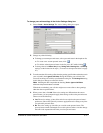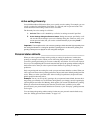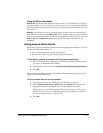
9-6
Selecting a personal status on the phone
You can select a personal status on the phone in the following ways:
Q Log on and press 6 1. See “Selecting a personal status on the phone” on page 5-10. You
can select the Available personal status quickly by picking up the phone and pressing
*50.
Q For call center agent statuses, pick up your phone and press *51 through *53. Use these
quick commands to begin and end your shift and to go on break. See
“Starting and
ending your shift, and taking breaks” on page B-2.
Modifying a personal status ________________________________
You can modify predefined and custom personal statuses to reflect your changing availability
and location. For example, if you are often away from your desk attending meetings, you can
modify the In a Meeting personal status to send your callers directly to voicemail and play a
special “in a meeting” greeting that you record.
The following predefined personal statuses have preferences that you cannot modify.
Q Do Not Disturb. The Taking calls preference is fixed at No—the status always sends
you calls directly to the final action of your routing list (usually your voicemail) without
ringing your phone.
Q Available. The Taking calls preference is fixed at Yes—this status always implies that
you are ready to take calls.
Q Available and Available (Queue Only) for call center agents. The Queue calls
preference is always set to
Yes. For more information, see Appendix B.
You cannot delete or rename predefined personal statuses.
To modify a personal status
1. In the Personal Statuses folder, double-click the personal status. The Personal Status
dialog box opens.
2. Follow the steps described in the next section, “Creating a custom personal status.”
Creating a custom personal status __________________________
You can create custom personal statuses for your own use for any of the following reasons:
Q To provide more information to your colleagues about where you are and what you are
doing, for example, Working From Home, At ViewPoint XYZ, and so forth.
Q To facilitate frequent changes to several call-handling settings at once. For example,
whenever you work at the East Side office you might want to forward your calls and
change your voicemail greeting. By creating a custom personal status called East Side
Office, you can automatically make both those changes just by selecting the status.



